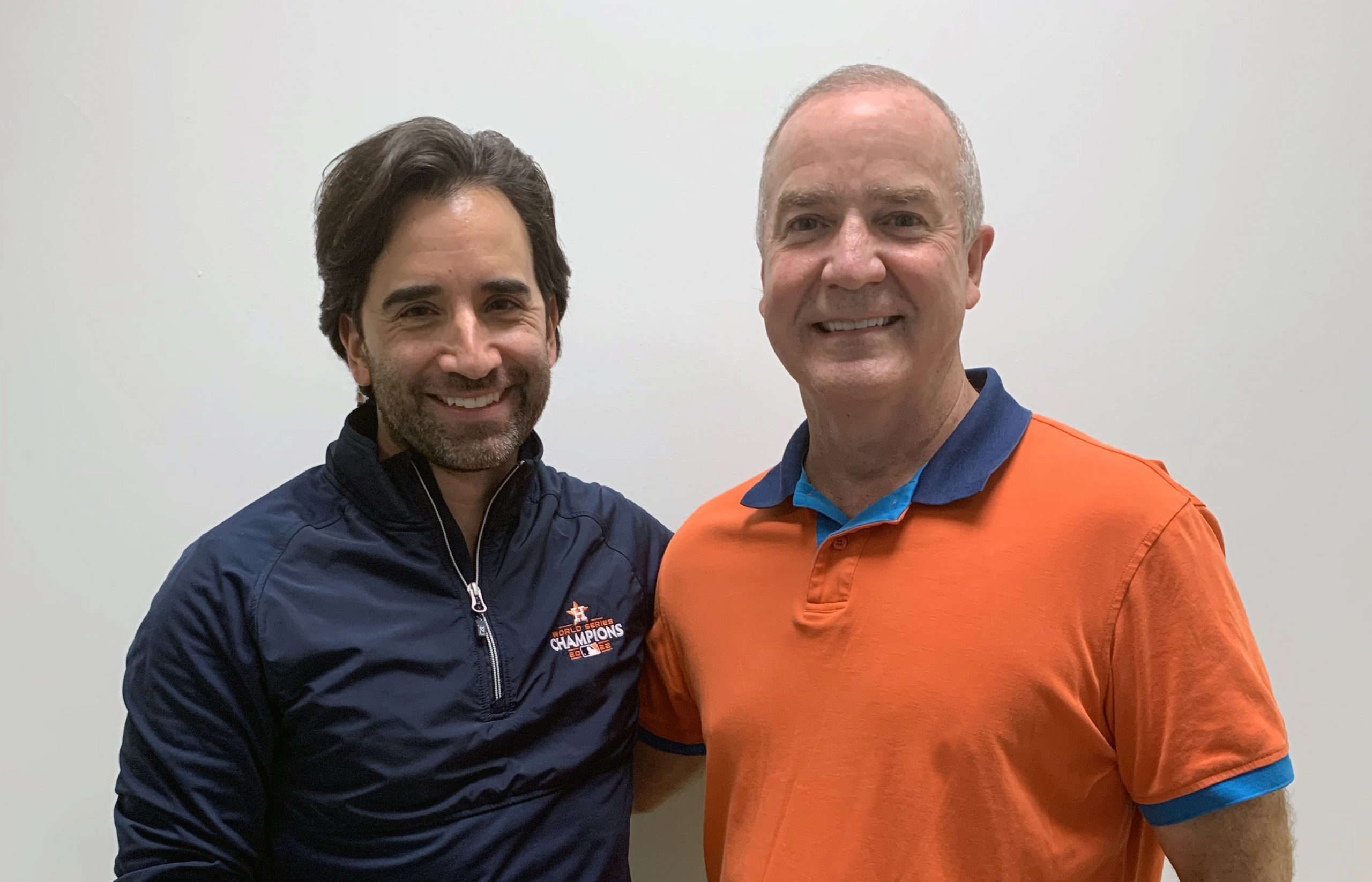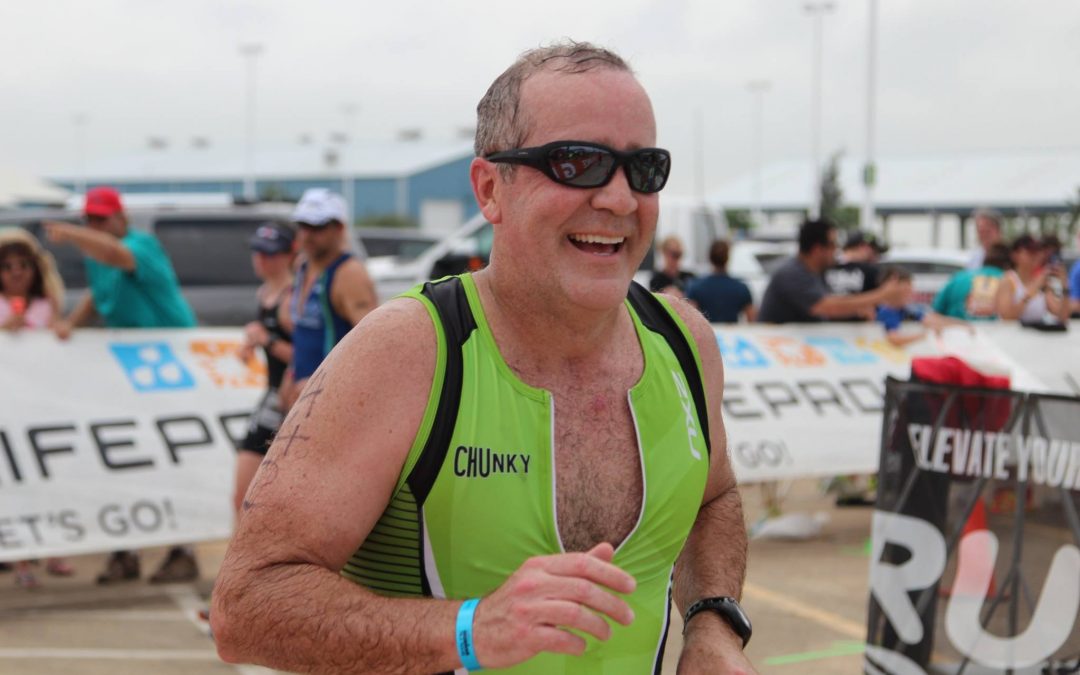In 2010, Tom O’Driscoll donated his left kidney to a stranger. Over the next decade, he competed in nine Ironman triathlons.
In 2022, he donated 60% of his kidney to someone he’d never met. Nine months later, he completed his tenth Ironman.
On March 9, World Kidney Day, Tom will summit Mount Kilimanjaro with other kidney and liver donors, organ recipients, and transplant professionals to demonstrate boldly that the life-saving act of living organ donation doesn’t diminish the health, wellness, or quality of life of the donor or recipient.
Tom initially learned about altruistic or non-directed kidney donation when he heard the story of Chaya Lipschutz on an episode of the radio program This American Life. Chaya’s journey to perform a mitzvah—a good deed—by donating her kidney to a stranger in need inspired him to consider becoming a donor. “That story changed my life,” he says.
He began the process of becoming a kidney donor and eventually was matched with a woman in California. Twelve years later, both donor and recipient are thriving and have become friends.
Tom also became friends with Chaya, whose story initially inspired him to become a donor. Chaya has dedicated her life to matchmaking for organ donors and recipients, and it was through her website, kidneymitzvah.com, that Tom learned about liver donation.
In 2022, the US surpassed the tremendous milestone of more than one million transplants, but there are more than 100,000 people on waiting lists, and 13 people die each day awaiting organ donation.
When Chaya didn’t have a match for him, Tom, a native Houstonian, started exploring local transplant centers. “If you go to any of the big transplant hospitals, like Houston Methodist, they will have a page asking if you want to be an organ donor.”
After completing the initial online screening questionnaire, he was informed that at 58, he was ineligible to be a liver donor. Undeterred, he spoke to Chaya who recommended he contact USC’s Keck School of Medicine transplant program. They accepted him as a candidate and after traveling to California for tests, he was matched with a recipient and scheduled for surgery and became a double donor.
Double donation is a rarity. In the last 25 years, only about 50 people have donated organs to two different people, according to the United Network for Organ Sharing.
“Other than the skin, the liver is the only organ that regenerates. After partial donation, the liver returns to full function in two to four weeks, and it regrows to nearly its full size in about two months. The human body is amazing!”

Tom O’Driscoll (right) with Physical Therapist John Fernandez
Tom believes that physical therapy is a big part of what’s kept him fit and competition-ready well into his 50s. “When you’re an athletes, injuries are bound to happen. I’ve seen professional baseball players diagnosed with the same injuries I’ve sustained, and they’ll be laid out for months! Laurie and the team always get me back up and running in no time. I’ve been going to Affiliates for more than 20 years. I wouldn’t consider going anywhere else.”
Tom’s new mission is to spread the word about organ donation and inspire others to make that life-saving choice. He found out about the trip to Mount Kilimanjaro through Living Donor Adventures, a non-profit organization dedicated to raising awareness about living organ donation and the need for donors by demonstrating through life-affirming adventures that organ donation doesn’t limit the donor’s possibilities.
“A big part of the purpose of the trek is to show that there’s just not an effect on health or wellness from being an organ donor.”
All of the participants in the Mount Kilimanjaro trek are paying their own expenses, but you can help them share their stories and increase awareness about living organ donation by contributing to their GoFundMe.
As a runner and triathlete, Tom takes the fact that he’s saved the lives of two people he didn’t know literally in stride. “You don’t have to be an athlete to be an organ donor. You just have to be moderately healthy and take care of yourself. Before I started this process, I didn’t know anything about organ donation. Now it feels like a non-event.”
Learn More
UNOS (United Network for Organ Sharing) leads the network of transplant hospitals, organ procurement organizations, and thousands of volunteers who are dedicated to honoring the gifts of life entrusted to us and to making life-saving transplants possible for patients in need. You can learn more about becoming an organ donor or donate to UNOS on their website.
https://www.kidneymitzvah.com/ features amazing donation stories and connects potential donors with recipients in need.
Donate Life America works to save and lives through transplantation and develop a culture where donation is embraced as a fundamental human responsibility.

